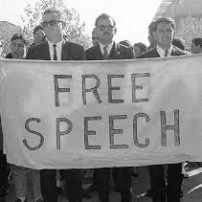
A court order has ordered a news website to “take down” video that captured police brutality, without covering the officer’s face. Violation of the freedom of expression
JUDGMENT
BILDGMBH&CO. KG v. Germany 31.10.2023 (app. no. 9602/18)
SUMMARY
The case concerned a court ruling ordering bild.de, a major news website, to take down CCTV
footage of a police arrest at a nightclub in Bremen unless it blurred the face of one of the police
officers involved.
The Court found in particular that the reasoning of the German courts as regards the second and any
future use of the footage had been insufficient, and that the reasoning could lead to an
unacceptable ban on any future publication, without the consent of the individuals concerned, of
unedited images of police officers performing their duties.
PROVISION
Article 10
PRINCIPAL FACTS
The applicant, Bild GmbH, is a limited liability company with its registered office in Berlin. It owns
and operates the news website bild.de and publishes the large-circulation newspapers Bild and Bild
am Sonntag.
On 10 July 2013 an article was published on bild.de about the police having been called to a
nightclub in Bremen in June of that year owing to allegations of aggressive behaviour by D., a
customer, towards staff. It was entitled “Here the police beat up [D.] (28)”.
The article was accompanied by a video, which showed several police officers forcing D. to the
ground, with one of the officers (not the applicant) kicking him and hitting him with a baton while he
was on the floor. The website followed this up with a second article, “How the night of the beating
unfolded”, which had further footage, showing D.’s aggressive actions before the officers’ arrival.
The face of one of the officers, P., was clearly visible in the footage; there was no suggestion that he
had used excessive force. On 18 July 2013 he asked that Bild take down the video until it had blurred
his face. Following their refusal, Officer P. went to court.
The Oldenburg Regional Court ordered that the video be taken down until Officer P.’s face was
blurred. It emphasised the importance of discussion around the State’s monopoly on the use of
force, but set that against P.’s personality rights in finding for him. It also noted that the footage of
D.’s actions had not been shown with the first article. The Oldenburg Court of Appeal upheld that
decision, stating that publication of the unedited CCTV footage without Officer P.’s consent would
violate his rights.
In August 2017 the Federal Constitutional Court refused to entertain a constitutional complaint by
the applicant company.
THE DECISION OF THE COURT…
In cases such as this, the Court was tasked with balancing the right to freedom of expression with
the individual’s right to respect for private life, examining it under its well-established criteria.
The Court agreed with the Regional Court that there was a legitimate public interest in the actions of
the police as an institution. However, it was important to recognise that under certain circumstances
publishing a police officer’s image could have adverse consequences for his or her private life, which
the national authorities should take into account.
As regards the form in which the video was presented, the Court held that the mere fact that the use
of force by the police was not portrayed in a negative way did not mean that its coverage in the
media should cease to enjoy any protection. The Court noted that the injunction had applied not just
to the already published footage, but to any future videos. This must have had a dissuasive effect,
which the German courts should have taken into account in their reasoning, but they had failed to
do so.
Overall, the Court was satisfied with the balancing of competing rights as regards the first video
published, but held that that exercise had been insufficient as regards the second and any future use
of the footage. In particular, without evaluating the contribution to a public debate, the courts had
stated in a general reasoning that neutral coverage of the police intervention, although it might not
depict the police officer in a negative way, could not be considered to be portraying a general aspect
of contemporary society and thus would be unlawful. This could lead to an unacceptable ban on any
future publication, without their consent, of unedited images of police officers performing their
duties.
The injunction had therefore not been necessary in a democratic society and had violated Article 10
of the Convention.
Just satisfaction (Article 41)
The Court held that Germany was to pay the applicant company 12,000 euros (EUR) in respect of
costs and expenses


